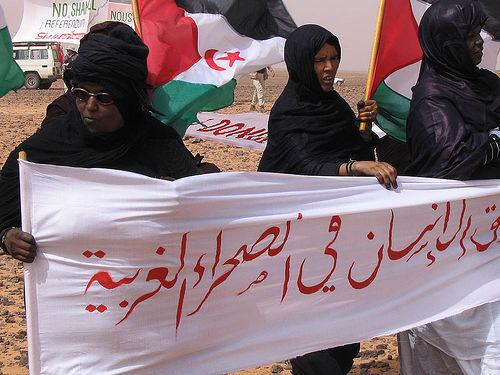
“I’ve never felt more optimistic about the possibility for a just resolution of the situation in Western Sahara than I do today,” former senior British diplomat Carne Ross told a meeting in the House of Commons on September 6th. The meeting – Western Sahara and the Arab Spring – was being held to mark the 20th anniversary of the UN-brokered ceasefire agreement which brought to an end 16 years of fighting between the Polisario Front and Moroccan forces. Under the terms of the ceasefire a referendum on self-determination was promised, but two decades later it has yet to be carried out and negotiations have remained deadlocked. One might think this is not a cause for optimism.
Yet the reasons for Ross’s positive outlook lie both in recent diplomatic developments, including the shift in British policy on issues such as human rights monitoring of the fishing in Western Saharan waters, but also in wider international trends. “The Southern Sudanese referendum on self-determination which led to the creation of the world’s 193rd nation is directly analogous to what should have happened in Western Sahara,” said Ross, whose organization, Independent Diplomat, provided diplomatic representation to the prospective Southern Sudanese government. “More significantly the Arab Spring is reshaping the political landscape of the region and creating a growing sense that people need to be heard,” he continued.
Noam Chomsky argues that the Arab Spring did not begin in Tunisia with the self-immolation of a market-seller but instead can be traced back to the massive protest camp that appeared in Western Sahara last October. The camp at Gdeim Izik lasted for a month and attracted thousands of Sahawari protesters from across the territory. UN estimates based on satellite imagery suggest that at its height, the camp contained around 6,600 tents. Like the later demonstrators in Tunisia and Egypt, Libya and Syria, the people at Gdeim Izik were protesting against unemployment, high food prices and political disenfranchisement. But they were also protesting against the ongoing Moroccan occupation of their country which began in 1976 when the Spanish colonizers departed.
On the morning of November 8th, 2010, Moroccan forces arrived in force to dismantle the camp and were met with resistance. Violence erupted and there were reports from both sides of large numbers of injuries and fatalities. With international journalists and observers banned from the area the details of what happened at that morning remain hard to establish. However, the incident attracted widespread attention internationally and across the region. In the immediate aftermath of the dismantlement of the camp there were violence clashes in cities of El Layoune and Dakhla but the situation in Western Sahara soon settled.
Whether or not there is any direct causal link between what happened at Gdeim Izik and what has followed across North Africa and the Middle East, the Arab Spring clearly represents an opportunity to break the deadlock in this most protracted of conflicts and find a resolution that is accordance with international law.
Under international law the people of Western Sahara have an inalienable right to self-determination as defined by the International Court of Justice in its Advisory Opinion on Western Sahara in 1975: namely the right of a people to exercise a free choice over their political and territorial destiny. “This right cannot be satisfied by any process or negotiations that fall short of offering the Western Saharans a free choice over their future that included the option of independent statehood,” Dr. Catriona Drew, lecturer in international law at the School of African and Oriental Studies told the parliamentary meeting. “Morocco’s offer of autonomy could only comply with international law if it was one of a range of options put to the Western Saharans in a ballot.”
Last week we joined a delegation of MPs and campaigners to deliver a letter to David Cameron calling on Britain to use her role within the UN Security Council to help enforce the terms of the ceasefire and hold a referendum on self-determination. The letter, which included the signature of Francesco Bastagli, the former UN special representative in Western Sahara who resigned his post in 2006 in protest at UN inaction on the issue, concluded that “twenty years is too long, but it is not too late for international law to be applied and a peaceful resolution brought to this conflict.”
Although there has been no indication that Rabat intends to shift its policy on Western Sahara, and eight recent rounds of UN-sponsored informal talks have failed to make any progress, Paul Whiteway, director of Independent Diplomat’s London office also sounded a note of optimism. “If the Arab Spring has taught us anything, it is that the voice of a strong-willed people is difficult to suppress and this is not lost on the Saharawi people, whose struggle represents one of the greatest injustices of the post-colonial world,” he said. “With elections in the pipeline in several North African countries, perhaps a referendum for the Saharawi people is not so unlikely after all.”
Jeremy Corbyn in MP for Islington North and vice chair of the Parliamentary Human Rights Group. Stefan Simanowitz is a journalist and broadcaster and chair of the Free Western Sahara Network. The meeting was organized by the All Party Parliamentary Group on Western Sahara. Photo by Saharauiak under a CC License.
